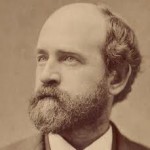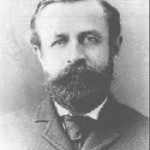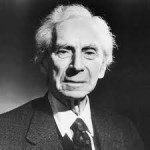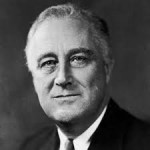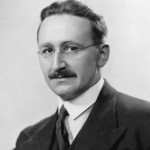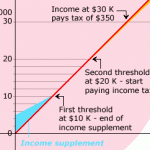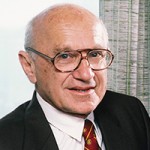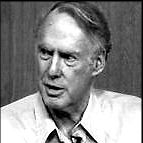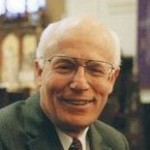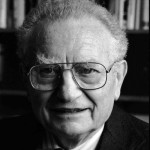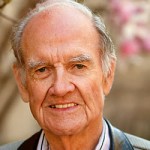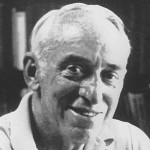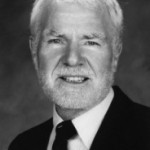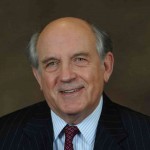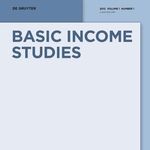The idea of an unconditional basic income has three historical roots. The idea of a minimum income first appeared at the beginning of the 16th century. The idea of an unconditional one-off grant first appeared at the end of the 18th century. And the two were combined for the first time to form the idea of an unconditional basic income near the middle of the 19th century.
16th century
Raphael’s cure for theft – The idea of a minimum income guaranteed by the government to all the members of a particular community is far older than the more specific and radical idea of an unconditional basic income.
In Thomas More’s Utopia, published in Louvain in 1516, the Portuguese traveller Raphael Nonsenso, walking on the central square of the City of Antwerp, narrates a conversation he says he had with John Morton, the Archbishop of Canterbury. Such a scheme, he argued, would be a more astute way of fighting theft than sentencing thieves to death, which had the unpleasant side effect of increasing the murder rate.
No penalty on earth will stop people from stealing, if it is their only way of getting food.
It would be far more to the point to provide everyone with somne means of livelihood
 Johannes Ludovicus Vives (1492-1540)
Johannes Ludovicus Vives (1492-1540)
A pragmatic theological plea for public assistance – It is, however, Thomas More’s close friend and fellow humanist, Johannes Ludovicus Vives, who should be regarded as the true father of the idea of a guaranteed minimum income, as he was the first to work out a detailed scheme and develop a comprehensive argument for it, based both on theological and pragmatic considerations.
1776
In 1776, while serving as a delegate to the Virginia legislature, Thomas Jefferson proposed giving 50 acres of public land to any propertyless individual willing to farm it. That was the first homestead program, subsequently copied by other states, and probably the first government program that sought to provide a secure income for the poor.
1795
 Antoine Caritat, Marquis de Condorcet (1743-1794)
Antoine Caritat, Marquis de Condorcet (1743-1794)
Condorcet on social insurance – However, towards the end of the 18th century, a different idea emerged that was to play an even greater role in the alleviation of poverty throughout Europe. The first known person to have sketched the idea is the first-rate mathematician and political activist, Antoine Caritat, Marquis de Condorcet (1743-1794). After having played a prominent role in the French revolution, both as a journalist and as a member of the Convention, Condorcet was imprisoned and sentenced to death. While in prison, he wrote his most systematic work, the Esquisse d’un tableau historique des progrès de l’esprit humain (published posthumously by his widow in 1795), whose last chapter contains a brief sketch of what a social insurance might look like and how it could reduce inequality, insecurity and poverty.
Condorcet himself is not known to have said or written anything else on the subject, but his close friend and fellow member of the Convention Thomas Paine (1737-1809) developed the idea in far greater detail, two years after Condorcet’s death, in a memoir addressed to the Directoire, the five-member executive that ruled France during most of the period separating the beheading of Robespierre and the rise of Napoleon.
Thomas Paine
Thomas Paine is best known forCommon Sense, the pamphlet he published in 1776 to argue for independence from England. In 1795 he published Agrarian Justice.The title page of the first edition summarized his proposal:
Agrarian justice, opposed to agrarian law, and to agrarian monopoly. Being a plan for meliorating the conditions of man by creating in every nation, a national fund, to pay to every person, when arriving at the age of twenty-one years, the sum of fifteen pounds sterling, to enable him or her to begin the world! And also, ten pounds sterling per annum during life to every person now living of the age of fifty years, and to all others when they shall arrive at that age, to enable them to live in old age without wretchedness, and go decently out of the world.
Payments were to go to every person, rich or poor, healthy or disabled. It is “a right, and not a charity, that I am pleading for.”
He wanted the funds to come from a “ground-rent” paid by property owners. This is just and proper, he argued, because the earth is “the common property of the human race” and everyone deserves a share. Agrarian justice would provide that share as cash to people who had no land.
1862
Abraham Lincoln called for, and the federal government enacted, the National Homestead Act of 1862. It granted 160 acres of public land to any head of a family 21 years of age or older who agreed to reside upon the land and cultivate it for five years.Almost 720,000 homesteads were established under the law, and homesteads continued to be available in some states until the early 1900s.
1880s
Henry George published Progress and Poverty in 1879, and the book sold more than two million copies over the following two decades.He sought to abolish all taxes on income or production, because such taxes discourage labor, and to replace them with a single tax on land. “There is a fundamental and irreconcilable difference between property in things which are the product of labor and property in land.” He maintained that eliminating taxes on labor would bring an end to poverty.Here’s a quote from <em “>Progress and Poverty that Martin Luther King used in Where Do We Go From Here: Chaos or Community?, which was his last book and where he called for guaranteed income:
The fact is that the work which improves the condition of mankind, the work which extends knowledge and increases power and enriches literature, and elevates thought, is not done to secure a living. … It is the work of men who perform it for their own sake, and not that they may get more to eat or drink, or wear, or display. In a state of society where want is abolished, work of this sort could be enormously increased.
In The Land Question, published in 1881, George called for “land-value” taxes to be high enough to confiscate unearned income and profits from speculation, and he claimed:
There would be at once a large surplus over and above what are now considered the legitimate expenses of government. We could divide this, if we wanted to, among the whole community, share and share alike.
George was nearly elected mayor of New York City as an independent candidate in 1886. (The Republican who finished third was Theodore Roosevelt.)
In an 1887 novel, Looking Backward, Edward Bellamy described how people might live in the year 2000 when society provides everyone with food, shelter, education, and health care. He envisioned an extraordinary increase in civility, generosity, and creativity.His book sold millions of copies and was hugely influential. People around the United States formed more than 160 “Bellamy clubs” to discuss his ideas and to work toward implementing them.
The Populist and Progressive Movements
Henry George’s and Edward Bellamy’s ideas contributed significantly to the political ferment of the Populist and Progressive era, and thus to the many political reforms that were achieved. Those reforms included antitrust laws, pure food laws, the graduated income tax, and direct election of senators.
1918
British philosopher Bertrand Russell wrote:
a certain small income, sufficient for necessities, should be secured for all, whether they work or not. A larger income … should be given to those who are willing to engage in some work which the community recognizes as useful.
That’s from Proposed Roads to Freedom: Socialism, Anarchism and Syndicalism.
1930s
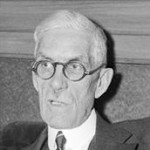 The Townsend Plan and Social Security
The Townsend Plan and Social Security
Francis Townsend was a 65-year old family physician in 1933, the low point of the Great Depression, when he wrote a letter to the editor of his local newspaper and a short pamphlet. He proposed government payments of $200 each month to everyone aged 60 or older. (Adjusted for inflation, that $200 would now equal almost $3,000.)The “Old Age Revolving Pension” combined “liberal financial retirement for the aged with national recovery and permanent prosperity.” Recovery and prosperity were to be achieved by requiring recipients to quit any paid work and to spend all of the money each month, thereby creating jobs for younger workers. To raise the money, he proposed a 2 percent sales tax on all business transactions.Roughly 2.2 million people joined Townsend Clubs, and that popular movement played a key role in lobbying for Social Security. The Social Security Administration acknowledges that influence: a copy of Townsend’s pamphlet is on the government’s web site.
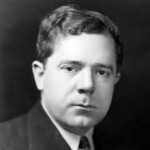 Share Our Wealth and Huey Long
Share Our Wealth and Huey Long
Share Our Wealth was a national movement launched in 1934, demanding a guaranteed income of $5,000 a year for every family. There were clubs in every state, and in 1935 they claimed to have 7.7 million members.Huey Long, who founded it, proposed to raise the money through substantial taxes on the very rich. He was preparing to run for president against Franklin Roosevelt in 1936, when he was assassinated by the son of a political rival in Louisiana.
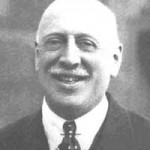 C.H. Douglas and the Social credit movement
C.H. Douglas and the Social credit movement
Social credit is an interdisciplinarydistributive philosophy developed by C. H. Douglas (1879–1952), a British engineer, who wrote a book by that name in 1924. It encompasses the fields of economics, political science, history, accounting, and physics. Its policies are designed, according to Douglas…
“Systems were made for men, and not men for systems, and the interest of man which is self-development, is above all systems, whether theological, political or economic.”
Douglas said that Social Crediters want to build a new civilization based upon
“absolute economic security” for the individual, where “they shall sit every man under his vine and under his fig tree; and none shall make them afraid.”
In his words,
“what we really demand of existence is not that we shall be put into somebody else’s Utopia, but we shall be put in a position to construct a Utopia of our own.”
1940s
Franklin Roosevelt, in his annual Message to Congress on January 11, 1944 and in a fireside chat to the American people the same evening, stated that:
We have come to a clear realization of the fact that true individual freedom cannot exist without economic security and independence. “Necessitous men are not free men.” People who are hungry and out of a job are the stuff of which dictatorships are made.
In our day these economic truths have become accepted as self-evident. We have accepted, so to speak, a second Bill of Rights under which a new basis of security and prosperity can be established for all — regardless of station, race, or creed.
In his 1944 book, The Road to Serfdom, F. A. Hayek endorsed the idea of providing people “the security of a minimum income.” He wrote,
There can be no doubt that some minimum of food, shelter, and clothing, sufficient to preserve health and the capacity to work, can be assured to everybody.
[This is] no privilege but a legitimate object of desire … [that] can be provided for all outside of and supplementary to the market system.
That security, he opined, would enhance freedom for every individual.
At the same time, and much more widely noted, he opposed most government programs because they interfered in the market and thereby impaired freedom and security. He received the Nobel Memorial Prize in Economics in 1974.
With a negative income tax, people who earn less than some set amount would receive money from the government, instead of paying taxes to it. This was first proposed by Juliet Rhys-Williams, a British public servant and political activist. Another British guaranteed income advocate at that time was James Meade, who received the Nobel Memorial Prize in Economics in 1977.American economists who supported this idea in the 1940s included Abba Lerner and George Stigler, who won the Nobel in economics in 1982.
 Universal Declaration of Human Rights
Universal Declaration of Human Rights
The Universal Declaration of Human Rights was enacted by the United Nations on December 10, 1948. Several of its articles imply a right to a basic income. The UDHR is widely respected and cited around the world, though not so well known in the United States.
Article 3.
Everyone has the right to life, liberty and security of person.Article 25.
Everyone has the right to a standard of living adequate for the health and well-being of himself and of his family, including food, clothing, housing and medical care and necessary social services, and the right to security in the event of unemployment, sickness, disability, widowhood, old age or other lack of livelihood in circumstances beyond his control.
Peter Drucker proposed a “predictable income plan” in The New Society, published in 1949 and reissued in 1962 and 1993. Predictable income would “banish the uncertainty, the dread of the unknown and the deep feelings of insecurity under which the worker today lives.” The guaranteed income he sought was to be minimal and variable as economic conditions change.He rejected the idea of trying to guarantee jobs or wages. Any job or wage guarantee “would not be worth the paper on which it is written. It would give the worker the illusion of security which is bound to be cruelly disappointed” during economic downturns. Such practices could also “freeze the economy … subsidizing obsolescent industries and restricting, if not stopping, technological progress.”
1960s
In his 1962 book Capitalism and Freedom, economist Milton Friedman considered methods to help the poor and concluded that “the arrangement that recommends itself on purely mechanical grounds is a negative income tax.”
The advantages of this arrangement are clear. It is directed specifically at the problem of poverty. It gives help in the form most useful to the individual, namely, cash. It is general and could be substituted for the host of special measures now in effect. It makes explicit the cost borne by society. It operates outside the market.
He was an economics advisor to Barry Goldwater in his 1964 campaign for president, served on Richard Nixon’s committee of economic advisors, and was awarded the Nobel Memorial Prize in Economics in 1976.
In a 1980 book, Free to Choose (with his wife, Rose Friedman), which became the basis for a PBS television series, he wrote:
We should replace the ragbag of specific welfare programs with a single comprehensive program of income supplements in cash — a negative income tax. It would provide an assured minimum to all persons in need, regardless of the reasons for their need, while doing as little harm as possible to their character, their independence, or their incentives to better their own conditions.
A negative income tax provides comprehensive reform which would do more efficiently and humanely what our present welfare system does so inefficiently and inhumanely.
He reaffirmed support for the negative income tax several times over the next few decades, as recently as 2002 (he died in 2006).
In a 1963 book, Free Men and Free Markets, socioeconomist Robert Theobald wrote that:
It is the attempt to keep the economy growing fast enough to provide jobs for all that … keeps us living within “a whirling-dervish economy dependent on compulsive consumption.” This book proposes the establishment of new principles specifically designed to break the link between jobs and income.
The need is clear: the principle of an economic floor under each individual must be established. This principle would apply equally to every member of society and carry with it no connotation of personal inadequacy or implication that an undeserving income was being received from an overgenerous government.
Basic Economic Security can be best regarded as an extension of the present Social Security system to a world in which conventional job availability will steadily decline.
We will need to adopt the concept of an absolute constitutional right to an income.
He also edited a book in 1966, The Guaranteed Income: Next Step in Economic Evolution?, that included papers by Erich Fromm, Marshall McLuhan, and other eminent social scientists.
Economist John Kenneth Galbraith called for a guaranteed income in a number of articles in the 1960s and in the second edition of his bestselling book, The Affluent Society (though not in the first edition, which was published in 1958).In a 1966 article he wrote:
We need to consider the one prompt and effective solution for poverty, which is to provide everyone with a minimum income. The arguments against this proposal are numerous, but most of them are excuses for not thinking about a solution, even one that is so exceedingly plausible.
Idleness, we agree, is demoralizing. But even here there is a question: Why is leisure so uniformly bad for the poor and so uniformly good for the exceptionally well-to-do?
We can easily afford an income floor. … And there is no antidote for poverty that is quite so certain in its effects as the provision of income.
In a 1999 article he wrote about “unfinished business of the century and millennium,” particularly the persistence of a very large number of poor people even in wealthy countries:
The answer or part of the answer is rather clear: everybody should be guaranteed a decent basic income. A rich country such as the U.S. can well afford to keep everybody out of poverty. Some, it will be said, will seize upon the income and won’t work. So it is now with more limited welfare, as it is called. Let us accept some resort to leisure by the poor as well as by the rich.
A social psychologist and author of several books on the meaning of freedom, Erich Fromm discussed the changes that guaranteed income will bring for individuals and society as a whole.
The principle prevailing throughout most of human history in the past and present is: “He who does not work shall not eat.” This threat forced man not only to act in accordance with what was demanded of him but also to think and to feel in such a way that he would not even be tempted to act differently.
Guaranteed income would not only establish freedom as a reality rather than a slogan, it would also establish a principle deeply rooted in Western religious and humanist tradition: man has the right to live, regardless! This right to live, to have food, shelter, medical care, education, etc., is an intrinsic human right that cannot be restricted by any condition, not even the one that he must be socially ‘useful.’
The shift from a psychology of scarcity to that of abundance is one of the most important steps in human development. … Liberation from fear of starvation would mark the transition from a prehuman to a truly human society.
Fromm then addressed concerns about whether guaranteed income would reduce the incentive for work.
Aside from the fact that there is already no work for an ever increasing sector of the population, and hence that the question of incentive for these people is irrelevant. … It can be demonstrated that material incentive is by no means the only incentive for work and effort. First of all there are other incentives: pride, social recognition, pleasure in work itself, etc.
Secondly, it is a fact that man, by nature, is not lazy, but on the contrary suffers from the results of inactivity. People might prefer not to work for one or two months, but the vast majority would beg to work, even if they were not paid for it.
Marshall McLuhan was a scholar of automation and technology as transformative agents in society.
Guaranteed income must increasingly include the satisfaction we gain from effective involvement in meaningful work. “Leisure,” which the artist always enjoys, is created by the fullest possible employment of the faculties in creative activity. … The guaranteed income that results from automation could therefore be understood to include that quite unquantifiable factor of joy and satisfaction that results from a free and full disclosure of one’s powers in any task organized to permit such activity.
Throughout the final year of his life, Martin Luther King Jr. called for guaranteed income. Here are a few quotes from his last book, Where Do We Go From Here: Chaos or Community? (1968):
The solution to poverty is to abolish it directly by a now widely discussed measure: the guaranteed income. … We are likely to find that the problems of housing and education, instead of preceding the elimination of poverty, will themselves be affected if poverty is first abolished.
A host of positive psychological changes inevitably will result from widespread economic security. The dignity of the individual will flourish when the decisions concerning his life are in his hands, when he has the assurance that his income is stable and certain, and when he knows that he has the means to seek self-improvement.
There is nothing except shortsightedness to prevent us from guaranteeing an annual minimum – and livable – income for every American family. The time has come for us to civilize ourselves by the total, direct and immediate abolition of poverty.
King noted that guaranteed income is much more than a civil rights program, because more than two-thirds of the beneficiaries would be white.
Renowned anthropologist Margaret Mead, in a 1968 column in Redbook magazine, examined the social and psychological consequences of guaranteed income, and strongly endorsed the idea.
The danger that we would be underwriting the failures is trivial compared with the benefits the guaranteed annual income would provide us. It would provide dignity for every citizen and choice for every citizen.
Philip Wogaman, a minister and professor of Christian social ethics, published Guaranteed Annual Income: The Moral Issues in 1968. After citing Robert Theobald, Milton Friedman, and other proponents, he presented the arguments against the idea:
To summarize: a case can be made against guaranteed income on the ground of equity and justice, its damaging effects on human creativity and social fulfillment, its overlooking the incompetence and immorality of the poor, and its neglect of the need to overcome man’s selfishness and inertia. Most of these arguments are rooted in the assumptions of economic individualism and the “Protestant ethic” which are more or less taken for granted in our society.
Then he examined each of these points, and concluded that “the case for guaranteed income is persuasive on both ethical and practical grounds.”
Guaranteed income as a secure economic floor will make it possible for men to become what God intended them to become by free response. The fact that many will doubtless abuse this freedom is a risk which God has taken in creating man in the first place.
This right to be is one which God has given to each of us regardless of our undeserving. Guaranteed income will be a recognition, in economic terms, of what God has done.
He also suggested that “Christians may have some unique contribution to make with respect to the guaranteed income issue.” Moreover, with their passion for justice, Christians may have a duty to endorse guaranteed income.
The appendix includes statements in support of guaranteed income from (1) The National Council of Churches of Christ in the U.S.A, (2) The United Methodist Church, and (3) a special committee of the United Presbyterian Church in the U.S.A.
In the spring of 1968, Paul Samuelson, the 1970 Nobel laureate in economics, joined four other prominent economists – John Kenneth Galbraith, Robert Lampman, Harold Watts, and James Tobin (1981 Nobel laureate) – and published a letter that called on Congress “to adopt this year a national system of income guarantees and supplements.” The letter was circulated, and more than 1,200 of their colleagues signed on.
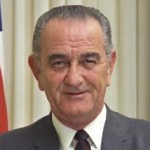 Lyndon Johnson and the President’s Commission on Income Maintenance
Lyndon Johnson and the President’s Commission on Income Maintenance
In January 1968, Lyndon Johnson appointed a National Commission on Income Maintenance Programs to study the needs of poor Americans and make recommendations. The chairman was Ben W. Heineman, president of Northwest Industries. Other prominent members included Thomas J. Watson Jr., chairman of IBM; David Sullivan, president of the Service Employees International Union; civil rights leader A. Philip Randolph; politicians Edmund G. Brown and Barbara Jordan; and economist Robert Solow (who won the Nobel Memorial Prize in Economics in 1987). The executive director was Robert Harris.The Commission held hearings around the country over 22 months, and issued a unanimous report in November 1969:
Our main recommendation is for the creation of a universal income supplement program financed and administered by the Federal Government, making cash payments to all members of the population with income needs. The payments would provide a base income for any needy family or individual.
Work requirements … cannot be used effectively in determining eligibility for aid, and are undesirable in any case. … Inevitably, any simple test designed to withhold aid from the voluntarily unemployed will deal harshly with some of those who cannot find work.
Our observations have convinced us that the poor are not unlike the non-poor. Most of the poor want to work. They want to improve their potential and to be trained for better jobs. Like most Americans, the poor would like to do something with their lives beyond merely subsisting. By providing them with a basic system of income support, we provide them with an opportunity to do these things.
We do not believe that work disincentive effects of the proposed program would be serious.
Architect, futurist, and design scientist R. Buckminster Fuller, in a 1969 book Operating Manual for Spaceship Earth, described current political and economic practices as heading toward self-destruction. To avoid that, “we must give each human who is or becomes unemployed a life fellowship in research and development or in just simple thinking.” That would free everyone to “think truthfully and to act accordingly without fear of losing his franchise to live.”
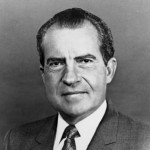 Richard Nixon and the Family Assistance Plan
Richard Nixon and the Family Assistance Plan
On August 8, 1969, eight months after taking office, Richard Nixon gave a televised address on poverty and welfare:
We face an urban crisis, a social crisis — and at the same time, a crisis of confidence in the capacity of government to do its job. … Nowhere has the failure of government been more apparent than in its efforts to help the poor and especially the system of public welfare.
That is why tonight I therefore propose that we abolish the present welfare system and that we adopt in its place a new family assistance system. Initially, this new system will cost more than welfare. But unlike welfare, it is designed to correct the condition it deals with and thus to lessen the long-range burden and cost.
For a family of four now on welfare, with no outside income, the basic Federal payment would be $1,600 a year. States could add to that amount and most states would add to it. In no case would anyone’s present level of benefits be lowered.
This new system establishes a direct link between the government’s willingness to help the needy and the willingness of the needy to help themselves. It removes the present incentive not to work and substitutes an incentive to work; it removes the present incentive for families to break apart and substitutes an incentive for families to stay together. It removes the blatant inequities, injustices, and indignities of the welfare system. It establishes a basic Federal floor so that children in any state have at least the minimum essentials of life.
The Family Assistance Plan was a guaranteed income, though in his speech Nixon explicitly denied that fact. The incentives he emphasized were mostly from the elimination of existing disincentives that aggressively reduced welfare payments when recipients started to work and earn.
Nixon’s plan attracted widespread popular support, including from major newspapers, and it passed in the House of Representatives with two-thirds of the vote. After some modifications it passed in the House a second time, also by two-to-one. But it was narrowly defeated in the Senate Finance Committee.
Daniel Patrick Moynihan was domestic policy advisor to Richard Nixon and the author of Nixon’s Family Assistance Plan. His 1973 book The Politics of a Guaranteed Income described in detail how the plan was conceived, presented, debated, and defeated. He blamed the defeat on many factors, including Nixon’s refusal to expend any political capital; the skillful maneuvering of conservative opponents in the Senate; the timidity and ambitiousness of liberals in the Senate, several of whom wanted an issue to run on in 1972; and the misguided, shortsighted actions of the National Welfare Rights Organization, which organized against the plan, seeking something more generous.
 The Income Maintenance Experiments
The Income Maintenance Experiments
Starting in 1968 and running until 1978, the federal Office of Economic Opportunity conducted a series of experiments with guaranteed income in place of welfare. Families in New Jersey, Denver, Seattle, and elsewhere – more than 8,500 people in all – received money each month to keep them at or above the poverty level. Researchers tracked the amount people received, the number of hours they worked, the rate of divorce, and other variables.There have been many books and more than 350 scholarly articles about the experiments, with supporters and opponents of guaranteed income citing the data to argue their case. Among the reasons for the confusion and disagreements is that during the debates about Nixon’s Family Assistance Plan members of the Senate demanded the data. The premature results showed an increase in the rate of divorce and decline in work hours, and those “facts” helped defeat FAP. When the final analysis was done several years later, scholarly and popular interest had waned and funding had mostly ended. Even today, citations are often based on the incomplete results.Some sets of facts from the final analysis: First, divorce rates were the same as comparison groups. The initial difference appears to have been a statistical anomaly. Second, total work hours declined about 6 percent, and certainly no more than 9 percent. Most of the decline was among wives and teenagers, not the men who were primary wage earners. The experiments did not document the reasons people worked fewer hours. There were reports of people going back to school, leaving unsatisfying jobs to look for better ones, staying home when ill instead of going to work, taking time off to care for sick family members.Several summaries and analyses have been presented at meetings of the U.S. Basic Income Guarantee Network. (Note: These are Word documents, to download) This paper reports on a panel that featured Robert A. Levine, Harold Watts, and several other people who were involved in the research. Here is a review of the literature by Karl Widerquist, with a lengthy bibliography. And here is an article by Robert Harris, who was executive director of the President’s Commission on Income Maintenance.
1970s
“A national guaranteed income” was one of the platform planks of the D.C. Statehood Party, which was founded in 1970 to promote civil rights and full citizenship for residents of Washington D.C.D.C. residents still do not have full representation in Congress. And Congress continues to oversee and sometimes overrule D.C.’s budget and other actions of the elected mayor and council.
Senator George McGovern campaigned for president in 1972 with an economic platform that called for “Demogrants” — guaranteed income payments of $1,000 to every citizen.Though he lost, there were many reasons that had nothing to do with his economic platform. There was disarray in his campaign, the Democratic party, and the country as a whole, primarily regarding the war in Vietnam. Plus the fact that Nixon was an incumbent with enormously more campaign cash.
Economist James Tobin designed George McGovern’s guaranteed income plan, but subsequently complained that the plan’s introduction was “botched” during the intensity of the California primary in June 1972 against Hubert Humphrey.He wrote several papers in support of guaranteed income in the 1960s, and signed the letter of support with John Kenneth Galbraith, Paul Samuelson, Robert Lampman, and Harold Watts. In addition, he was a member of John F. Kennedy’s Council of Economic Advisors in 1961-2 and was awarded the Nobel Memorial Prize in Economics in 1981.
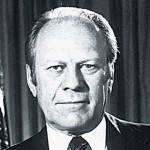 Gerald Ford and the Earned Income Tax Credit
Gerald Ford and the Earned Income Tax Credit
During the debates on Nixon’s Family Assistance Plan, Gerald Ford was the minority leader in the House and the plan’s leading advocate in Congress. He promoted it actively, resisting conservatives’ objections, and succeeded twice in winning two-thirds of the vote. After becoming president, he supported the EITC and signed it into law in 1975.The EITC provides income supplements for poor workers, though not the unemployed. It’s a complicated feature of the tax code, and those complications mean that many eligible people do not receive the funds. Even so, it has been by far America’s most effective antipoverty program.
Governor of Georgia during the debates about Nixon’s Family Assistance Plan, Jimmy Carter was the only southern governor to endorse it. During his 1976 presidential campaign he called for comprehensive welfare reform, and polling data indicated significant popular support for that policy. He proposed a Program for Better Jobs and Income in 1978, but he was unable to get it through Congress.
1980s
A businessman and aviation inventor, Leonard M. Greene founded and funded the Institute for SocioEconomic Studies, a policy research organization that endorsed “the National Tax Rebate,” a plan to alleviate poverty with a guaranteed income of $12,000 for a family of four. Though Greene died in 2006, the Institute is continuing his work.His books are Free Enterprise Without Poverty(1981), and The National Tax Rebate: A New America with Less Government (1998).The appendix to The National Tax Rebate is a study of the costs and expected effects of five variations of his guaranteed income plan, and demonstrates significant reductions in poverty. That study by Columbia University Professor Irwin Garfinkel and Chien-Chung Huang was updated in February 2002, and the newer version is here (as a Word document).
Independent scholar Allan Sheahen is the author of Guaranteed Income: The Right to Economic Security (1983).He also authored, with economist Karl Widerquist, a proposal for a small basic income that became the Tax Cut for the Rest of Us Act of 2004; their proposal is here as a Word document.His 2006 analysis of the costs of a full basic income is here as a pdf.
 Alaska — the Permanent Fund Dividend
Alaska — the Permanent Fund Dividend
Oil was discovered in Alaska in 1969. Jay Hammond, a Republican, was the governor from 1974 to 1982, and he endorsed the idea of distributing some of the royalty income to residents. The state constitution was amended to create the Alaska Permanent Fund to benefit current residents and future generations. A percentage of oil royalties goes into the Fund, which is permanent because the money is invested in a diverse portfolio, managed by a semi-independent corporation. Dividends are paid every year to every legal resident who was in the state for more than 6 months of the year.The first dividend was paid in 1982, when every resident received a check for $1,000. The amount fluctuates every year, depending on the price of oil, the investment portfolio, and general economic conditions. Dividends are paid in October as either a check or direct deposit into a bank account. In 2007 the dividend was $1,654. In 2008, after Governor Sarah Palin pushed for an increased royalty rate, the dividend was $3,269, which is $13,076 for a family of four.Alaskans love the PFD.Research has shown that most of them use the money to pay off debt, send children to college, save for retirement. (And if some take Hawaii vacations in February, who can blame them?) During the three decades since it was introduced, every other state has seen a significant widening of income inequality, the gap between the very rich and the poor. Alaska has been the one state with decreasing inequality, and that’s due to the PFD.Advocates of guaranteed income have called for similar royalty funds to be collected and distributed on other natural materials and common assets, including coal, timber, minerals, urban land value, and electromagnetic spectrum.More specifically, many environmentalists endorse the idea of “tax and dividend,” combining higher carbon taxes to reduce fuel consumption and slow climate change with some type of rebate. The rebates would reduce harmful social consequences and are designed to attract political support. Any such program could be a step toward a basic income.
Independent scholar Alfred F. Andersen is the author of Liberating the Early American Dream: A Way to Transcend the Capitalist/Communist Dilemma Nonviolently (1985). The key to achieving the goals in his title and subtitle, he maintained, is guaranteed income.
 BIEN, the Basic Income Earth Network
BIEN, the Basic Income Earth Network
The Basic Income Earth Network, BIEN, was founded in 1986 as the Basic Income European Network, and expanded its scope from Europe to the Earth in 2004. It is an international network that serves as a link between individuals and groups committed to or simply interested in basic income, and fosters informed discussion of the topic throughout the world.The network invites participation from people interested in any form of guaranteed income. They hold Congresses every two years, distribute a free email Newsflash every two months, and help support the journal Basic Income Studies.BIEN is supported by individual members from throughout the world, and affiliated with sixteen national networks. www.basicincome.org
A founding member of the Basic Income European Network and Harvard University professor, philosopher and political economist Philippe Van Parijs is the author or editor of several books, including Arguing for Basic Income: Ethical foundations for a radical reform (1992) and Real Freedom for All: What (if anything) can justify capitalism? (1997).What’s Wrong with a Free Lunch(2001) features a paper by Van Parijs and responses from a number of eminent social scientists, among them Gar Alperovitz, Emma Rothschild, and Herbert Simon, who received the Nobel Memorial Prize in Economics in 1978. There is a forward by Robert Solow, who served on the President’s Commission on Income Maintenance and received the Nobel in economics in 1987.
A professor of economic security and labor economics at several universities, Guy Standing was a founding member of BIEN and the main organizer of the 2002 BIEN Congress, which was held in Geneva at the headquarters of the International Labor Organization. He edited a book of papers selected from the Congress, Promoting Income Security as a Right, Europe and North America(2005).
1990s
 Jeffrey Smith and Gary Flo, the Geonomy Society
Jeffrey Smith and Gary Flo, the Geonomy Society
Independent scholars Jeffrey Smith and Gary Flo founded the Geonomy Society in 1990 to advance the policies of Henry George and “Citizen’s Dividends,” their term for guaranteed basic income. “Geonomy” emphasizes the fact that all economic activity starts with the earth.
A former welfare mother in New York City who became a political activist, Theresa Funiciello described the abuses, absurdities, indignities, and disincentives in the welfare system in a 1992 book, Tyranny of Kindness: Dismantling the welfare system to end poverty in America. She concluded that the only real solution is guaranteed income.
Technology and economic trends analyst Jeremy Rifkin, in his 1995 book The End of Work, examined the displacement of workers due to automation and the information age.
In the debates over how best to divide up the benefits of productivity advances, every country must ultimately grapple with an elementary question of economic justice. … Since the advances in technology are going to mean fewer and fewer jobs in the market economy, the only effective way to ensure those permanently displaced by machinery the benefits of increased productivity is to provide some kind of government-guaranteed income.
With guaranteed income independent of their jobs, workers would be more free to set their own schedules and adapt to changing conditions. That adaptability would in turn allow greater flexibility for employers, plus many benefits for society as a whole.
Political economist Hazel Henderson has endorsed guaranteed income in several books, includingBuilding a Win-Win World (1996).
A lecturer in economics and business administration at the University of California, Berkeley, Robert Schutz wrote The $30,000 Solution: a guaranteed annual income for every American(1996). His calculation of $30,000 for every adult was based on redistribution of all unearned income: rent, interest, capital gains, dividends, winnings, gifts, and inheritance.
A professor of insurance at Drake University in Iowa, Michael L. Murray published … And Economic Justice for All: Welfare reform for the 21st century (1997). He sought a guaranteed adequate income combined with a flat income tax, and showed how such a system would be affordable.
Independent scholar Steven Shafarman is the author of four books about guaranteed income.Healing Americans: A new vision for politics, economics, and pursuing happiness (1998); Healing Politics: Citizen policies and the pursuit of happiness (2000); and We the People: Healing our democracy and saving our world (2001). His most recent book is Peaceful, Positive Revolution: Economic security for every American (2008).His proposal for Citizen Policies combines guaranteed basic income, which he calls Citizen Dividends, with universal Citizen Service, so everyone would be giving some time back to the community. This combination would strengthen our democracy and lead to rapid progress on climate change, health care reform, education reform, and many other issues. Peaceful, Positive Revolution also considers the potential for basic income in other countries, including Iraq, Afghanistan, and the Middle East, and how that can promote peace.He is the publisher and primary author of this web site.

 Bruce Ackerman and Anne Alstott
Bruce Ackerman and Anne Alstott
Yale University professors of law Bruce Ackerman and Anne Alstott published The Stakeholder Society (1999):
We offer a practical plan to reaffirm the reality of a common citizenship. As each American reaches maturity, he or she will be guaranteed a stake of $80,000. Our plan seeks justice by rooting it in capitalism’s preeminent value: the importance of private property. It points the way to a society that is more democratic, more productive and more free. Bear with us, and you will see how a single innovation once proposed by Tom Paine can achieve what a thousand lesser policies have failed to accomplish. Through stakeholding, Americans can win a renewed sense that they do indeed live in a land of equal opportunity where all have gotten a fair chance.
They proposed to fund stakeholding with a 2 percent tax on wealth.
Much later in the book they consider several alternative innovations, including:
Proposals for a basic income call for guaranteeing an unconditional cash payment each year to each adult. Everyone would get the basic income, regardless of their other income or wealth.
We urge its serious consideration in the United States. Like stakeholding, the basic income puts the emphasis on freedom. With a basic income, everyone could count on at least four thousand dollars a year. The sum hardly opens up a life of leisure, but it would grant most Americans greater freedom to shape their lives.
Like stakeholding, the basic income grants this freedom and security without strings attached. It automatically supplements low wages without bureaucracy or complex wage subsidies. And with a basic income, more people can choose for themselves whether to work full-time or part-time, making their own tradeoffs between more money and more leisure.
2000 on
 USBIG, the U.S. Basic Income Guarantee Network
USBIG, the U.S. Basic Income Guarantee Network
 Karl Widerquist, Michael Lewis, Eri Noguchi, Fred Block, and Robert Harris founded the U.S. Basic Income Guarantee Network, USBIG, in 2001. USBIG is an informal network that promotes discussion of the basic income guarantee in the United States. Membership is free and open to anyone who shares the group’s goals. The group has held yearly congresses since 2002 and posts discussion papers on its web site: www.usbig.net. “What will it cost?” and “Can we afford it?” are among the most common questions people ask about basic income. The answer depends, of course, on how we define “it” — the size and design of the basic income.Advocates agree that the funds can come, primarily at least, from cutting government programs that would become superfluous. Specific calculations are of course subject to changing economic conditions. Here are some examples of previous answers and methodologies. This paper, a Word document is by Columbia University professor Irwin Garfinkel and associates. These two papers, here, in Word and here, in Word are by St. John’s University professor Charles M. A. Clark. And here, as a pdf is an analysis by independent scholar Allan Sheahen. Detailed cost calculations are also in the appendix to Charles Murray’s book In Our Hands: A plan to replace the welfare state.
Karl Widerquist, Michael Lewis, Eri Noguchi, Fred Block, and Robert Harris founded the U.S. Basic Income Guarantee Network, USBIG, in 2001. USBIG is an informal network that promotes discussion of the basic income guarantee in the United States. Membership is free and open to anyone who shares the group’s goals. The group has held yearly congresses since 2002 and posts discussion papers on its web site: www.usbig.net. “What will it cost?” and “Can we afford it?” are among the most common questions people ask about basic income. The answer depends, of course, on how we define “it” — the size and design of the basic income.Advocates agree that the funds can come, primarily at least, from cutting government programs that would become superfluous. Specific calculations are of course subject to changing economic conditions. Here are some examples of previous answers and methodologies. This paper, a Word document is by Columbia University professor Irwin Garfinkel and associates. These two papers, here, in Word and here, in Word are by St. John’s University professor Charles M. A. Clark. And here, as a pdf is an analysis by independent scholar Allan Sheahen. Detailed cost calculations are also in the appendix to Charles Murray’s book In Our Hands: A plan to replace the welfare state.
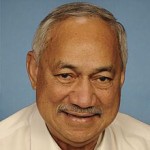 “American People’s Dividend,” the Congressional Progressive Caucus
“American People’s Dividend,” the Congressional Progressive Caucus
In January 2001, when Bill Clinton left office, there were huge surpluses in the federal budget and widespread support for tax cuts. The Congressional Progressive Caucus – about 50 members of the House of Representatives and one Senator, Paul Wellstone – called for an “American People’s Dividend” of $300 for every citizen, including children. They wanted the dividend to be repeated yearly if surpluses continued, as economists expected.The plan attracted endorsements from the AFL-CIO and other organizations, and Democrats in the House made it part of their tax cut proposal. In conference committee negotiations with the Senate, however, it was agreed that the $300 would only go to people who pay income tax, not to the very poor who have no earnings or pay only Social Security taxes. When the checks were issued that summer, the Bush administration, which had opposed it, sent letters to every recipient and claimed credit. On the Photo Eni Faleomavaega, Democratic Representative.
In late 2001, Steven Shafarman and Mike Livingston, with assistance from John Friedrich, Lorin Kleinman, and a few other volunteers, started a nonprofit organization to promote the idea of guaranteed income security. The Institute never quite got established, however, and they decided in 2004 that their efforts were premature.
Founder and director of the Center for the Study of Democratic Society, Robley George is the author of Sociocenomic Democracy: An advanced socioeconomic system (2002).He examines current economic models, including capitalism, socialism, communism, and mixed economies, and shows that all have serious flaws. His proposed alternative, “socioeconomic democracy,” combines a universal guaranteed income and maximum allowable personal wealth. Such a system would create strong economic incentives for individuals while helping to solve many existing social problems.
In the late 1960s and early ’70s, during the debates about guaranteed income and Nixon’s Family Assistance Plan, Eduardo Matarazzo Suplicy studied economics in the United States. After earning his PhD, he returned to his native Brazil to teach at the University of Sao Paulo — and to work toward realizing a guaranteed income.He was one of the co-founders of the Worker’s Party and was elected to the Senate in 1992. Through his efforts, in January 2004 Brazil became the first country in the world to pass a law declaring that everyone has a right to a minimum income. Brazil’s guaranteed basic income is being phased-in slowly by expanding and consolidating existing programs, primarily the bolsa familia, or “family grant.” Those plans and programs played a key role in the 2006 reelection of President Luis Inacio Lula da Silva.
 Green Party of the United States
Green Party of the United States
In June 2004 the Green Party of the United States adopted a platform plank calling for a guaranteed basic income.Green parties in Canada, Europe, Australia, Africa, and South America endorse basic income as a central feature of their economic policies.
Democrats and Republicans in both houses of Congress have supported plans to support children financially with government-funded “stakeholder accounts,” starting at birth. Every child would get a savings account, and poor families would be able to add money tax-free. At age 18 children would be able to use the money for education, to start a business, or to buy a home. The idea has received bipartisan support, though it has not yet passed any committee in either house.Something similar, commonly called “baby bonds,” is already operating in England and can be considered a small guaranteed income for the next generation.
A professor at City University of New York Graduate Center, long-time labor organizer, and author of many books, Stanley Aronowitz endorsed a guaranteed basic income in Left Turn: Forging a new political future (2006).
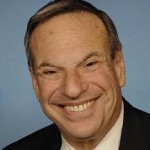 The Tax Cut for the Rest of Us Act of 2006
The Tax Cut for the Rest of Us Act of 2006
In May 2006 Cong. Bob Filner, a Democrat from San Diego, introduced H.R. 5257, the Tax Cut for the Rest of Us Act of 2006. It would have provided a guaranteed basic income of $2,000 for everyone who files a tax return, plus $2,000 for the spouse of the person who files and $1,000 for each dependent child under age 18. That would have replaced the standard deduction and exemptions, and could have been implemented with only minimal changes in tax forms and policies.The bill attracted only a few co-sponsors, however, none of them Republicans, so it never advanced.
A resident scholar at the American Enterprise Institute and author of several very influential books, Charles Murray published In Our Hands: A plan to replace the welfare state in 2006. He called for guaranteed income of $10,000 a year to every citizen age 21 or over.The funds would come from eliminating other government transfer programs. The appendix includes a thorough analysis of the cost and list of programs to be cut.
Basic Income Studies “provides a forum for the discussion of theoretical issues and empirical research on the design and implementation of basic income schemes and the future direction of universal welfare policy.” The first issue was June 2006.It is published online three times a year, with papers from scholars around the world. Institutions and scholars are asked to subscribe. Guests can read articles for free.
www.bepress.com/bis
Author and television host Marshall Brain has called for a guaranteed income of $25,000 for every U.S. citizen.He considers that a way to simultaneously (1) “create the largest possible pool of consumers,” (2) promote “maximum economic stability,” (3) “create the largest possible pool of innovators,” (4) encourage investment, and (5) provide people with “maximum freedom.”
 The 2008 presidential primaries
The 2008 presidential primaries
Indirect support for guaranteed income security came from Republican Mike Huckabee and Democrat Mike Gravel. Both called for abolishing the IRS and implementing a national retail sales tax, “the Fair Tax,” and that plan includes monthly cash payments based on household size.The proposed “prebates” would be small – they’re designed primarily to offset the punishing effects of the sales tax on the poor – but would be a guaranteed income, given to everyone.
Independent scholar and retired analyst for NASA and the U.S. Treasury Department, Richard C. Cook is the author of We Hold These Truths: The hope of monetary reform (2008).He proposes a comprehensive series of measures to reform our monetary system, which is run by the Federal Reserve Board, based on debt, and designed to concentrate wealth in the hands of the very few. His plan would make the system more equitable and just by basing it on the productive values of the physical economy, and a core feature is a “national dividend.”
Economist and attorney Joseph V. Kennedy has held several positions in the public and private sectors, including Chief Economist of the U.S. Department of Commerce. He is the author of Ending Poverty: Changing behavior, guaranteeing income, and transforming government (2008). He proposes:
A bilateral, annual, and voluntary contract between the government and any citizen above the age of twenty-one who wishes to participate. The government would hopefully guarantee the individual a minimum income of at least $20,000.
In exchange for the government’s commitment, the individual would commit to doing a limited number of qualifying actions
His plan, though clearly conditional, could be a major step toward income security for all. It is noteworthy that the guaranteed income he proposes is quite large.
Unconditional Basic Income Europe (UBIE)
UBIE stems from a European Citizens’ Initiative which started in April 2012 and ended in january 2014 after having collected more than 300,000 signatures in the European Union. The organisers of the initiative decided to move one step further by establishing an official network and pursue our goal to get the basic income implemented everywhere in Europe
The 2020 presidential primaries
 Andrew Yang
Andrew Yang
American 2020 Democratic presidential candidate, entrepreneur, lawyer, and philanthropist. He is the founder of Venture for America (VFA), a nonprofit that focuses on creating jobs in struggling American cities. Yang’s signature policy is what he calls the “Freedom Dividend“, a universal basic income (UBI) in the form of $1,000 monthly for every American adult. Yang believes that UBI is a necessary response to the rapid development of automation, which is increasingly leading to workforce challenges, and that job displacement by automation is what led to Donald Trump‘s election in 2016.
More History
A good history of Universal Basic Income – especially in the United Kindom – is written by Anton Jäger and Daniel Zamora
Anton Jäger is a doctoral student at the University of Cambridge, working on the history of populism in the United States. Together with Daniel Zamora, he is currently working on an intellectual history of basic income.
Daniel Zamora is an assistant professor of sociology at the Université Libre de Bruxelles.
https://lareviewofbooks.org/article/free-money-for-surfers-a-genealogy-of-the-idea-of-universal-basic-income/#disqus_thread
Source:
Page initially written by Steven Shafarman updated by our webmaster
- http://2noame.tumblr.com/post/84446680465/a-brief-history-of-basic-income-ideas
- more history on basic income: http://www.basicincome.org/bien/aboutbasicincome.html
Pictures added by our webmaster, courtesy of Google. If anyone has objection of using the picture, please let us know.
Anyone who wants to have someone added, please let us know.





